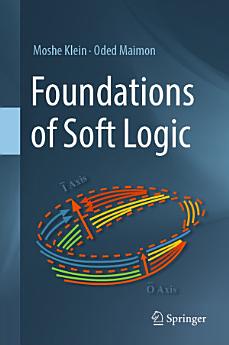Foundations of Soft Logic
អំពីសៀវភៅអេឡិចត្រូនិកនេះ
Life is more colorful and diverse than just the binary colors of black and white. For this purpose, the authors propose a new type of number called Soft Number. The basic idea is to distinguish between the different multiples of the number zero. Soft Logic is a continuous extension of the idea of giving different meanings to the zero. The authors create a tangible model of an infinitely small world. This seemingly inconceivable world is important for understanding the essence of the connection between the external world of reality and the inner world of human beings and offers a new language to express it. This book systematically and axiomatically describes the mathematical development of Soft Logic and Soft Numbers and points to possible directions for scientific and technological applications.
This book is a valuable resource for researchers working in mathematics, physics, biology, engineering, computer science and artificial intelligence as well as advanced-level students majoring in computer science, engineering and mathematics. Practitioners, Data Scientists, AI developers and readers interested in a scientific understanding of the concept of consciousness will also want to purchase this book.
អំពីអ្នកនិពន្ធ
Moshe Klein is a researcher in the Consciousness and Soft Logic research lab at Tel Aviv University headed by Oded Maimon. He is the founder of the Gan Adam project for the development of mathematical and scientific thinking among preschoolers and has since instructed hundreds of kindergarten teachers throughout Israel. He is a lecturer at Tel Hai College.
Oded Maimon is the Oracle chair professor at Tel Aviv University, previously from MIT. Oded’s research focuses on exploring and modeling natural and artificial intelligence, Soft logic, and consciousness. He has spent sabbaticals at BU (Boston) and BHU (Varanasi, India), and was invited to lecture and help direct leading universities around the world (including Stanford in the US, Tsinghua in China, IIT in India, Waseda in Japan, Paris 6 in France, and UNAD in Columbia). Oded has published over a hundred refereed papers in leading academic journals and twenty research books, and has made over two hundred research presentations at international scientific conferences with many invited and keynote presentations.





